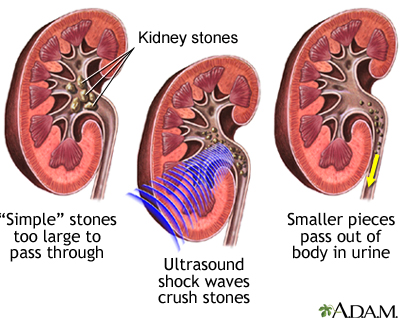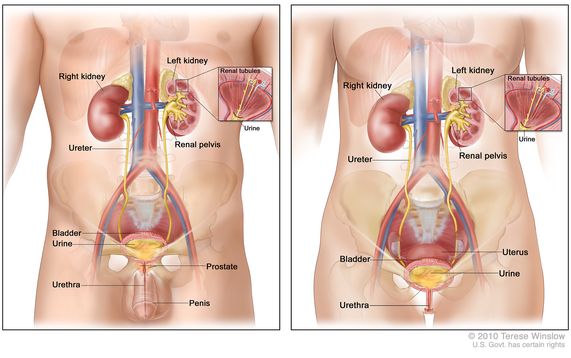Comprehensive Overview to Kidney Stones vs UTI: Diagnosis, Creates, and Alleviation
Comprehensive Overview to Kidney Stones vs UTI: Diagnosis, Creates, and Alleviation
Blog Article
Checking Out the Symptoms and Causes of Kidney Stones in Contrast to Urinary Tract Infections: A Detailed Guide
The expedition of kidney stones and urinary system system infections (UTIs) exposes an intricate interplay of signs and underlying reasons that require mindful examination. While both problems can bring about hematuria, they provide distinctive clinical functions and emerge from different etiological elements. Recognizing the subtleties of each condition is critical for effective diagnosis and monitoring. What are the key differences in their signs, and just how might these educate therapy strategies? The responses to these concerns might give vital insights into the avoidance and treatment of these usual urological concerns.
Review of Kidney Stones
Kidney rocks, additionally recognized as renal calculi, form when certain substances in the pee crystallize and accumulation, leading to the development of tough down payments within the kidneys. These rocks can differ in size, ranging from a grain of sand to a golf ball, and can be composed of numerous products, one of the most typical being calcium oxalate, uric acid, struvite, and cystine. The development of kidney stones is influenced by several factors, consisting of dietary practices, fluid consumption, and hereditary tendency.
Signs of kidney stones may consist of severe pain in the back or side, blood in the pee, nausea or vomiting, and regular urination, particularly as the rock relocates with the urinary system. Medical diagnosis normally involves imaging studies such as ultrasound or CT scans, along with urinalysis to recognize the stone's composition.
Therapy choices vary based upon the size and kind of rock, in addition to the extent of signs and symptoms (Kidney Stones vs UTI). Little stones might pass naturally with raised liquid intake, while bigger stones might need clinical interventions such as lithotripsy or medical removal. Understanding the pathophysiology and danger factors connected with kidney stones is important for reliable prevention and monitoring
Introduction of Urinary Tract Infections
Urinary system infections (UTIs) are usual microbial infections that affect any type of component of the urinary system, consisting of the kidneys, ureters, bladder, and urethra. They predominantly occur when germs, usually from the gastrointestinal tract, go into the urinary system, leading to swelling and infection.
The frequency of UTIs is notably higher in women than guys, mostly as a result of physiological distinctions, such as a shorter urethra. Risk elements consist of sex-related task, particular contraceptive approaches, urinary system retention, and dehydration. The diagnosis of UTIs is generally confirmed through pee examinations, which may expose the existence of germs, leukocyte, or red cell.

Signs And Symptoms of Kidney Stones
The discomfort connected with kidney stones can manifest in numerous means, often leading people to look for medical attention. One of one of the most typical signs is severe discomfort, commonly local in the lower back or side, which might emit to the abdomen or groin. This discomfort, usually explained as sharp or cramping, can take place instantly and might vary in strength.
Furthermore, individuals might experience hematuria, or blood in the pee, which can range from tiny total up to visible staining. This sign might be gone along with by changes in urinary system routines, such as increased regularity or urgency, as well as discomfort during peeing. Nausea and throwing up are also widespread, typically arising from the body's response to extreme pain.
Sometimes, individuals might experience high temperature and chills, especially if a second infection develops because of the blockage caused by the rocks. On the whole, the combination of serious discomfort, hematuria, altered urinary patterns, and stomach symptoms can offer substantial understanding into the presence of kidney rocks, necessitating prompt medical examination and treatment. Recognizing these symptoms is important for prompt medical diagnosis and reliable management of the condition.
Signs of Urinary System Infections
Infections within the urinary system system usually present a series of distinctive symptoms that can substantially affect every day life. One of the most usual signs and symptoms consist of a relentless urge to pee, often accompanied by a burning sensation during peeing, recognized as dysuria. People might additionally experience raised regularity of peeing, generating percentages of pee each time.
Various other noteworthy signs include cloudy or fetid pee, which might suggest the presence of bacteria or pus. In many cases, pee might appear red or pink due to the presence of blood, a problem understood as hematuria. Furthermore, individuals may experience pelvic pain or stress, which can additionally worsen the feeling of urgency.
Systemic signs and symptoms might likewise manifest, such as high temperature, cools, and fatigue, specifically if the infection has actually ascended to the kidneys. It is vital to recognize these signs and symptoms early, as without treatment urinary tract infections can bring about a lot more severe complications. Kidney Stones vs UTI. Motivate medical focus is recommended when these symptoms are observed, enabling suitable analysis examination and treatment to alleviate pain and avoid further health and wellness issues
Root Causes Of Each Condition
Regularly, kidney stones and urinary system tract infections arise from unique yet sometimes overlapping reasons that can affect people differently. Kidney stones typically develop due to metabolic aspects, nutritional options, and hereditary proneness. Boosted levels of calcium, oxalate, or uric acid in the pee can result in rock formation. Dehydration, not enough fluid consumption, and high-sodium diet regimens can worsen these problems, advertising condensation within the urinary system tract.

Understanding these distinct causes is essential for prevention and therapy. Kidney Stones vs UTI. While way of living alterations might reduce the risk of kidney rocks, ideal health and timely treatment of urinary system system infections are vital for decreasing their reappearance and linked difficulties
Verdict
In recap, kidney stones and urinary system system infections present unique symptoms and underlying causes. Kidney rocks are defined by extreme pain and metabolic aspects, while urinary system infections largely include microbial infections leading to urinary seriousness and pain.
The exploration of kidney rocks and urinary system system infections (UTIs) discloses a complex interplay of symptoms and underlying reasons that require cautious examination.Urinary system infections (UTIs) are common bacterial infections that impact any kind of part of the urinary system, including the kidneys, ureters, bladder, and urethra.Regularly, kidney rocks and urinary tract infections develop from distinctive yet sometimes overlapping reasons that can influence people in a different way.In recap, kidney rocks and urinary system system infections present distinct signs and directory underlying reasons. Kidney rocks are identified by severe pain and metabolic elements, while urinary system tract infections largely involve bacterial infections leading to urinary urgency and discomfort.
Report this page